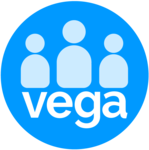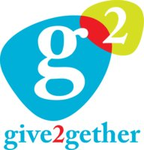Description

Auctria

vega
Comprehensive Overview: Auctria vs vega
Auctria and Vega are tools that serve different purposes and markets, so let's examine each in detail, focusing on their primary functions, target markets, market share, user base, and differentiating factors.
Auctria
a) Primary Functions and Target Markets
-
Primary Functions: Auctria is an online auction management platform designed to help nonprofit organizations, schools, and fundraising groups manage and conduct auctions efficiently. It offers features such as online bidding, event ticketing, donation tracking, payment processing, and reporting tools. The platform is geared towards simplifying the logistics of both in-person and virtual fundraising auctions.
-
Target Markets: Auctria primarily targets nonprofit organizations, charitable foundations, schools, and any entities engaged in fundraising activities. It is particularly popular among small to medium-sized nonprofits that need an affordable yet comprehensive solution for auction management.
b) Market Share and User Base
- While specific market share data for Auctria might not be publicly available, it is regarded as a leading solution in the niche of auction management software for nonprofits. Its user base primarily includes smaller nonprofits due to its cost-effective pricing and specialized features catering to their needs.
c) Key Differentiating Factors
- Cost-Effectiveness: Auctria offers a range of pricing plans that are accessible to smaller organizations with limited budgets.
- Nonprofit Focus: Unlike some general event management software, Auctria’s features are tailored specifically for nonprofit fundraising needs.
- Ease of Use: The platform is designed to be user-friendly, making it accessible even for those with limited technical experience.
Vega
Note: It can be challenging to provide a detailed overview of "Vega" without specific context, as the name could refer to several products in different industries. However, assuming you're referring to one relevant to fundraising or data management (as similarly themed to Auctria), here’s a generalized assessment. Please clarify if Vega refers to another specific product or context.
a) Primary Functions and Target Markets
- Primary Functions: If we take, for example, Vega as a CRM and donor management system, its functions would include donor tracking, communications, organizing fundraising campaigns, and data analytics. It would be designed to help organizations streamline their fundraising and build stronger relationships with donors.
- Target Markets: Like Auctria, a Vega-type product in this context would target nonprofits and charitable organizations focused on enhancing their fundraising and donor management activities.
b) Market Share and User Base
- A product like Vega in donor management might hold varying market share depending on the specific features and geographic focus. These tools are generally aimed at scaling with organizations, often presenting tiered pricing to accommodate both medium and larger nonprofits or charitable entities.
c) Key Differentiating Factors
- Comprehensive CRM Features: Compared to tools specifically designed for auction management, a robust donor management solution would offer more extensive CRM capabilities.
- Advanced Analytics: Such tools might include richer data analysis tools and reporting functionalities to enable deeper insights into donor behaviors and campaign performance.
Comparison Summary
- Functionality: Auctria excels in auction-specific features, making it ideal for organizations focused on event-based fundraising. Meanwhile, a Vega-like tool focuses more broadly on donor relationships and management.
- Target Audience: Auctria is well-suited for nonprofits heavily reliant on auction events. In contrast, Vega-like donor management tools cater to organizations seeking comprehensive CRM capabilities.
- Market Position: Both tools serve nonprofits but offer different scopes; Auctria is event-focused, while Vega-type platforms provide broader organizational engagement.
For precise information, particularly about Vega, direct documentation or clarification on the exact product in question would be necessary.
Contact Info

Year founded :
2011
+1 762-309-1234
Not Available
United States
http://www.linkedin.com/company/auctria

Year founded :
2010
Not Available
Not Available
France
Not Available
Feature Similarity Breakdown: Auctria, vega
As of my last update in October 2023, Auctria and Vega serve similar purposes in the auction and event management spaces but may have unique features and interface styles tailored to their specific audience. Here's a breakdown based on the core features and their user interfaces:
a) Core Features in Common
Both Auctria and Vega are platforms designed to facilitate event management with a focus on auctions. Some common features include:
- Auction Management: Ability to set up, promote, and manage auctions. This includes both live and silent auction capabilities.
- Bid Tracking: Real-time tracking of bids with notifications and updates for users.
- Mobile Bidding: Support for mobile devices, allowing participants to bid using their smartphones or tablets.
- Payment Processing: Integration with payment gateways to handle transactions securely.
- Donor Management: Tools to manage donor information and track donations.
- Event Registration: Ability to register attendees for events, often with customizable forms.
- Reporting and Analytics: Generate reports that provide insights into auction performance and attendee engagement.
- Online & In-Person Event Support: Features to manage both virtual and physical auction events, including streaming capabilities and hybrid event tools.
b) User Interfaces Comparison
-
Auctria: Known for its user-friendly interface tailored for small to medium-sized organizations. It often emphasizes simplicity and ease of use, ensuring that non-technical users can navigate it efficiently. The design is straightforward, with clear navigation and an emphasis on quick setup and management of auctions.
-
Vega: Vega's interface tends to be more robust, often appealing to larger organizations that require more customization and advanced features. It offers a modern design with intuitive navigation. Vega might invest more in customizable dashboards and detailed reporting visualizations, making it suitable for users who need deeper insights into their event data.
c) Unique Features
-
Auctria:
- Affordability: Auctria is often praised for its budget-friendly pricing models, making it accessible for smaller organizations or those new to managing auctions.
- Simplicity: The platform focuses on keeping the process straightforward, which can be beneficial for users looking for a no-frills, efficient auction management tool.
- Community Focused Features: Auctria might offer features that are particularly appealing to community organizations, schools, and smaller nonprofits.
-
Vega:
- Customization and Scalability: Vega may provide more advanced customization options and scalability for larger organizations.
- Integration Capabilities: Potential for deeper integration with other enterprise systems, allowing for seamless data flow between various tools in an organization’s tech stack.
- Advanced CRM Features: More robust donor and customer relationship management features, potentially supporting more extensive client bases.
When comparing these platforms, it's essential to assess the specific needs of your organization, such as the size, type of events you plan to run, and required features, to determine which platform will be most beneficial.
Features

Not Available

Not Available
Best Fit Use Cases: Auctria, vega
Auctria:
a) Types of Businesses or Projects:
- Nonprofits and Charity Organizations: Auctria is specifically designed for nonprofit organizations that are looking to manage and host fundraising auctions. This includes charities, schools, community groups, and other fundraising entities that require robust auction management capabilities.
- Event Fundraising Projects: Any event-driven fundraising initiatives, such as gala dinners, silent auctions, and online fundraising events, are well-suited to leverage Auctria's features.
b) Use Cases and Scenarios:
- Small to Medium-sized Nonprofits: Due to its cost-effective pricing and easy-to-use interface, small to mid-sized nonprofit organizations will find Auctria to be a valuable tool for reaching their fundraising goals without overextending their resources.
d) Industry Verticals or Company Sizes:
- Auctria caters specifically to the nonprofit sector, addressing various fundraising needs from simple silent auctions to large-scale online events. It typically appeals to small and medium-sized organizations that might not have the budget for a more comprehensive auction management tool. However, large organizations can also benefit if their primary focus is on auction-driven fundraising.
Vega:
a) Types of Businesses or Projects:
- Data Visualization Needs: Vega is best suited for businesses and projects that require advanced data visualization capabilities. This includes sectors like finance, research, marketing, and data science, where complex data needs to be represented visually.
- Developers and Data Analysts: It targets users who have a strong grasp of JavaScript and JSON, given its programmatic approach to creating visualizations.
b) Use Cases and Scenarios:
- Custom Data-driven Graphic Solutions: When there is a need for creating highly customized interactive graphics or dashboards, Vega is preferred. It's particularly useful where off-the-shelf data visualization tools do not provide the necessary flexibility or specificity.
- Integration with Web-based Applications: Projects looking to integrate sophisticated visualizations within web applications would find Vega highly beneficial.
d) Industry Verticals or Company Sizes:
- Vega caters to a wide range of industries that have analytical or reporting needs involving large or complex datasets, such as finance, healthcare, scientific research, and technology. It suits companies of all sizes, but primarily those that have developed technical capabilities in-house. Larger enterprises or tech-savvy startups that have the resources to implement custom solutions can leverage Vega’s capabilities to the fullest.
In summary, Auctria is specialized for nonprofit fundraising events, offering a straightforward solution for auction management, while Vega serves as a powerful tool for companies in need of sophisticated, custom data visualizations, appealing broadly across multiple data-centric industries.
Pricing

Pricing Not Available

Pricing Not Available
Metrics History
Metrics History
Comparing teamSize across companies
Conclusion & Final Verdict: Auctria vs vega
To provide a well-rounded conclusion and verdict for Auctria and Vega, it's important to evaluate each based on factors like functionality, user experience, pricing, and support. Here's a detailed analysis:
a) Best Overall Value
Auctria generally offers the best overall value, especially for organizations focused primarily on hosting auctions and fundraising events. Its features are tailored specifically for auction management, making it a strategic choice for nonprofits and charity organizations that rely on these types of events for fundraising.
b) Pros and Cons
Auctria:
Pros:
- Specialized Features: Auctria is rich in features specifically designed for auction management, such as bid tracking and donor management.
- User-Friendly Interface: The platform is easy to navigate, which is beneficial for users who may not be tech-savvy.
- Cost-Effective: Offers competitive pricing with packages tailored for different scales of operations, making it accessible for smaller organizations.
- Robust Support: Provides comprehensive customer support, ensuring users have help when they need it.
Cons:
- Limited to Auctions: If an organization needs broader event management functionality, Auctria might feel somewhat restrictive.
- Learning Curve for Advanced Features: While easier tasks are straightforward, mastering the full range of features might take some time.
Vega:
Pros:
- Versatile Platform: Vega offers a wide range of functionalities that go beyond auction management, including CRM and broader event management tools.
- Integration Capabilities: Works well with other platforms, enhancing overall organizational efficiency.
- Scalable Solutions: Suitable for various sizes of organizations, from small nonprofits to larger enterprises.
Cons:
- Higher Cost: Generally has a higher price point, which may not be feasible for smaller organizations with tight budgets.
- Complex Set-Up: The broad range of features can make initial setup and learning more complex compared to more specialized software.
- Overkill for Auctions: For organizations focused solely on auctions, Vega's diverse offerings might be more than necessary, leading to underutilization.
c) Recommendations
For users deciding between Auctria and Vega, consider the following recommendations:
-
Assess Organizational Needs: If your primary focus is auction management and you’re a smaller organization with a limited budget, Auctria is likely your best bet due to its specialized features and cost-effectiveness.
-
Broader Event Management: If your organization requires a more comprehensive solution covering various facets of event management beyond auctions (and you have the budget for it), Vega could be more beneficial.
-
Trial Period: Take advantage of any trial periods or demos offered by both Auctria and Vega. This will help you get a first-hand understanding of which platform aligns better with your needs and technical comfort.
-
Long-Term Growth: Consider the scalability of both platforms in relation to your organization’s projected growth. Vega's scalability can be a significant advantage if you anticipate expanding your event management needs.
In conclusion, while Auctria provides significant value for organizations focused on auction events, Vega's broader capabilities cater better to organizations looking for an all-in-one solution despite the higher costs. The decision ultimately depends on the specific requirements and budget constraints of the organization in question.
Add to compare
Add similar companies




